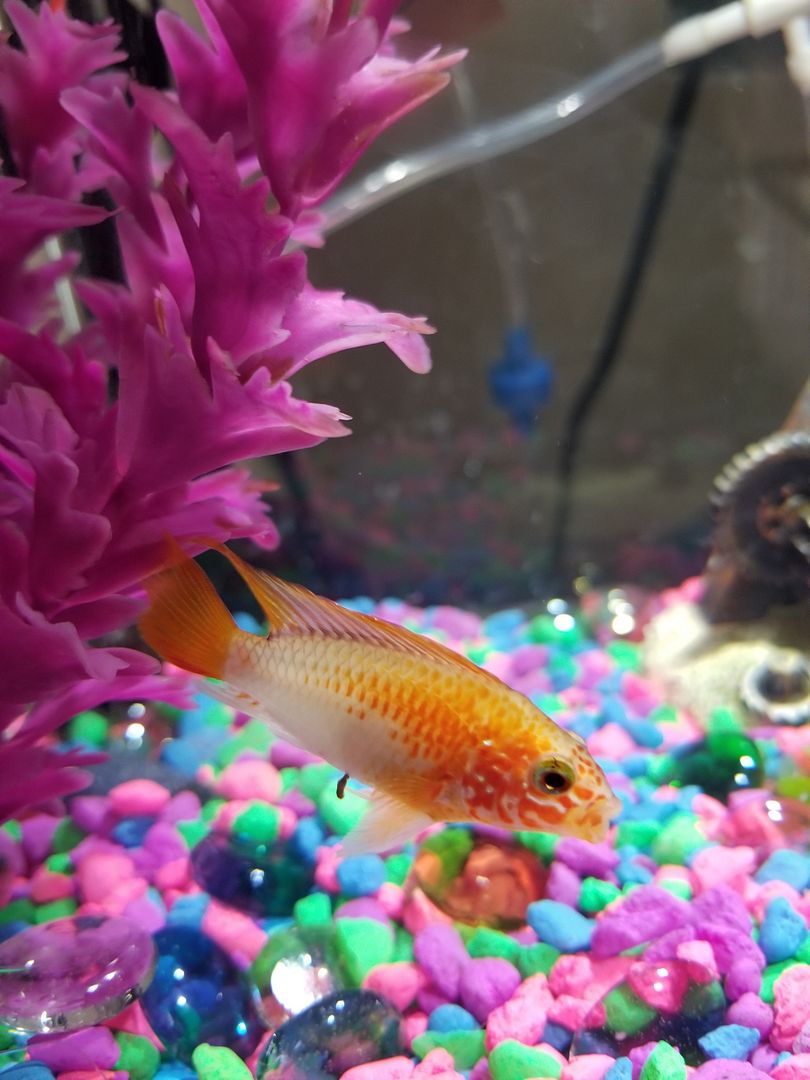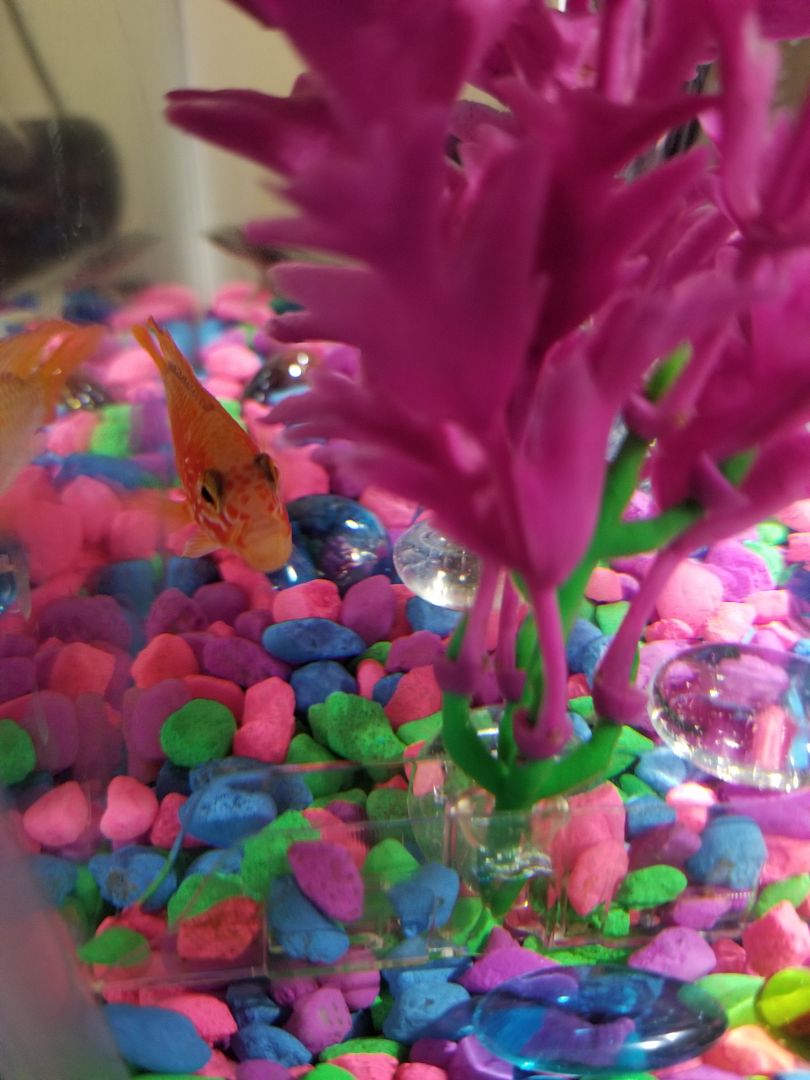Hello, I got a male and female MacMasteri Gold / Red a little over a month ago from the LFS. I wasn't quite ready for them as I am in the process of setting up a 40 gallon tank but had been looking for Apistos which I haven't found in locally and really liked the color of these. I was certain they wouldn't be around by the time I got my 40 setup and decided to go for it. I currently only have a 5 gallon setup with 2 Red Eye Tetras, 1 African Dwarf Frog, 2 Mystery snails and a Plecostomus that is about 6" long. They actually adapted very well, there has been no aggression with other fish and actually made the Tetras less shy. Everything had been going great and they even paired up and there were a bunch of reddish pink eggs in a hollow rock on Sunday May 26th. After about 3 days all of the eggs had been eaten, I assume the plecostomus ate most of them and the female apisto finished them off. She left the rock after that but started going back in the rock at night the last 2 nights. I assume she might be ready to lay more eggs?
Yesterday when I got home from work, my male is near the top of the tank, his mouth is wide open and and his gills are opening and closing at a very fast rate. I fed the tank and he did eat a some. His mouth doesn't completely close but does move a little. He didn't eat much though. He did poop after that and it appears normal (can see in the picture). I tested the water with the API Master Test kit and was as follows;
PH 7.4
Amonia 0
Nitrite 0
Nitrate 40ppm (I always struggle with this one judging the test kit, it has always been right at this same color and doesn't seem to change with water changes). It is definitely safe to say it has remained at this level the entire time I've had the Apistos.
I started looking up what this could be. A few things came up but I'm leaning toward lockjaw. I don't know what would cause this and I'm guessing there isn't much I can do. He seems to mostly just hang out at the top of the tank (and he a little diagonal instead of sitting horizontally) or hanging out at the bottom of the tank almost on the gravel. He does come out when I get near the tank and he slowly moves around and will eat a small amount of food but he's not moving around like normal. He's usually pretty active. The female still seems fine along with all of the other tank mates. Any ideas, does it look like the end of the road for this guy? I sure hope not, the 40 gallon tank is very close to being setup and ready to start cycling but I fear this guy will not make it to his new home. Thanks for any input.


Yesterday when I got home from work, my male is near the top of the tank, his mouth is wide open and and his gills are opening and closing at a very fast rate. I fed the tank and he did eat a some. His mouth doesn't completely close but does move a little. He didn't eat much though. He did poop after that and it appears normal (can see in the picture). I tested the water with the API Master Test kit and was as follows;
PH 7.4
Amonia 0
Nitrite 0
Nitrate 40ppm (I always struggle with this one judging the test kit, it has always been right at this same color and doesn't seem to change with water changes). It is definitely safe to say it has remained at this level the entire time I've had the Apistos.
I started looking up what this could be. A few things came up but I'm leaning toward lockjaw. I don't know what would cause this and I'm guessing there isn't much I can do. He seems to mostly just hang out at the top of the tank (and he a little diagonal instead of sitting horizontally) or hanging out at the bottom of the tank almost on the gravel. He does come out when I get near the tank and he slowly moves around and will eat a small amount of food but he's not moving around like normal. He's usually pretty active. The female still seems fine along with all of the other tank mates. Any ideas, does it look like the end of the road for this guy? I sure hope not, the 40 gallon tank is very close to being setup and ready to start cycling but I fear this guy will not make it to his new home. Thanks for any input.

